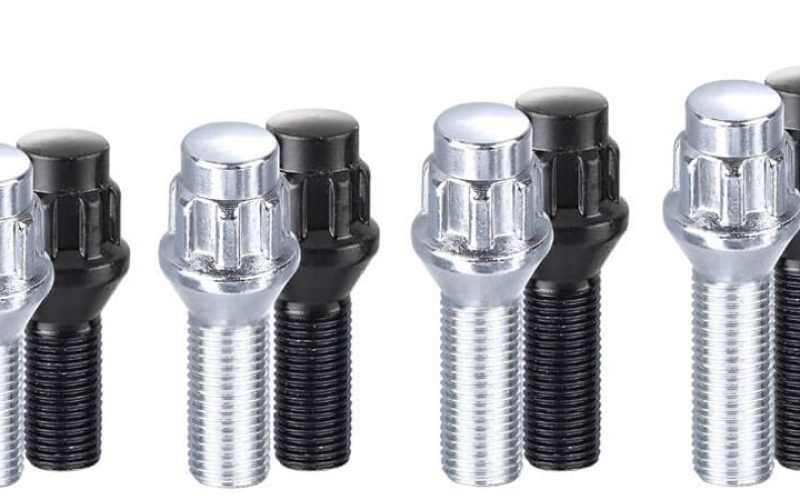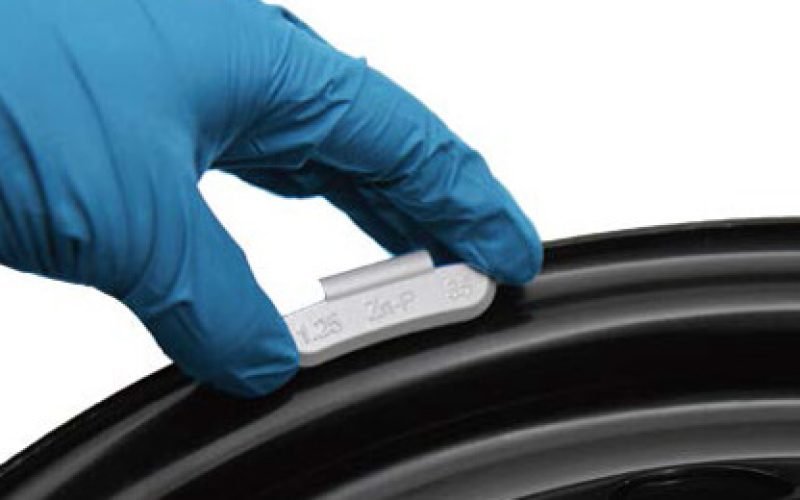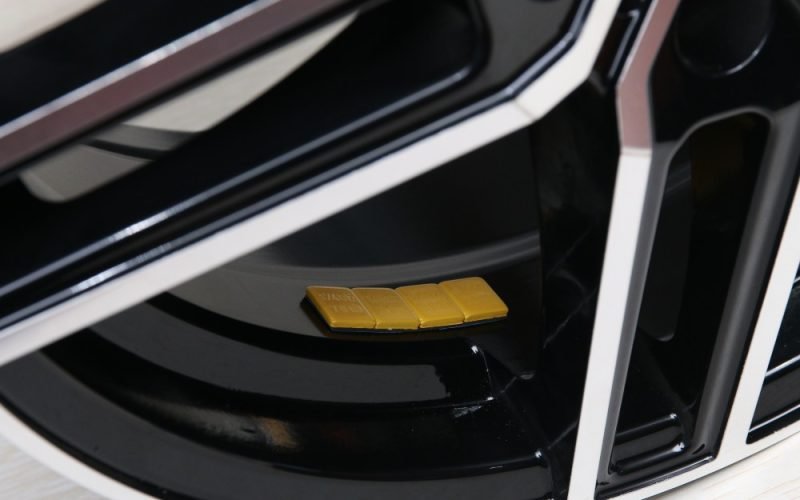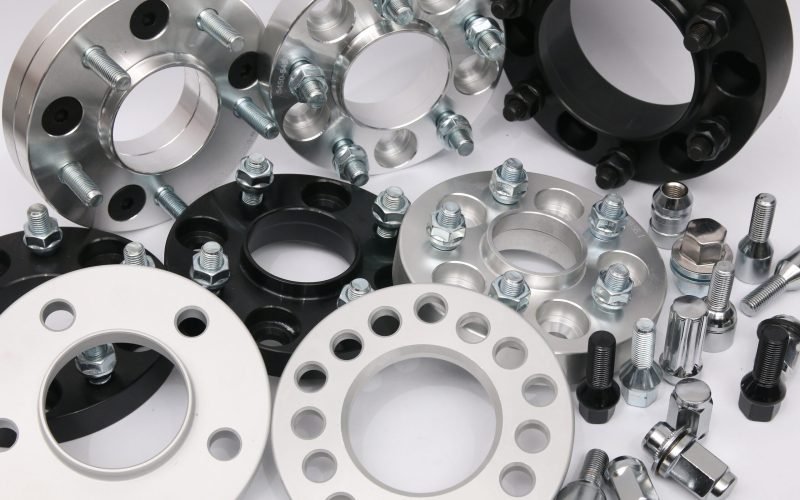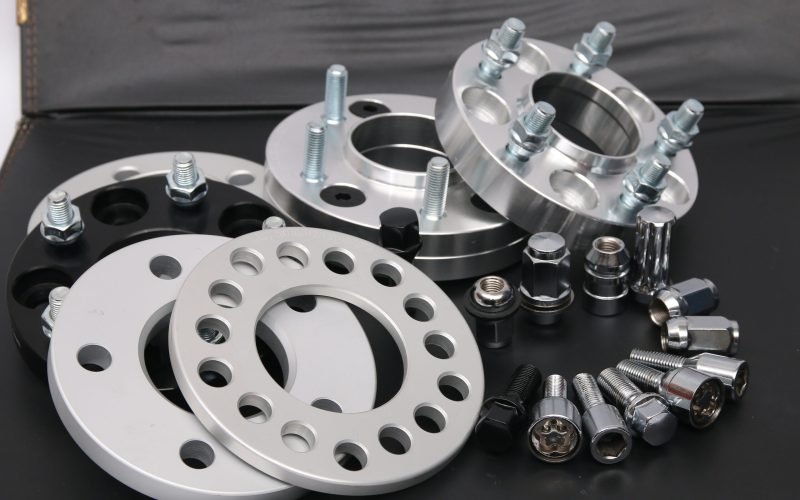

admin1
June 7, 2025
Lead Tire Weights vs Non-Lead: What’s Better?

When choosing between lead tire weights and non-lead alternatives, you should consider more than just cost. Lead tire weights, once a standard in the industry, pose significant risks to both the environment and public health. These weights can leach toxic substances into soil and water, creating lasting ecological damage. Non-lead options, on the other hand, offer a safer and more sustainable solution. By adopting non-lead weights, you not only protect the planet but also align with stricter regulations and growing customer demand for eco-friendly practices.
Environmental Impact of Lead Tire Weights vs Non-Lead
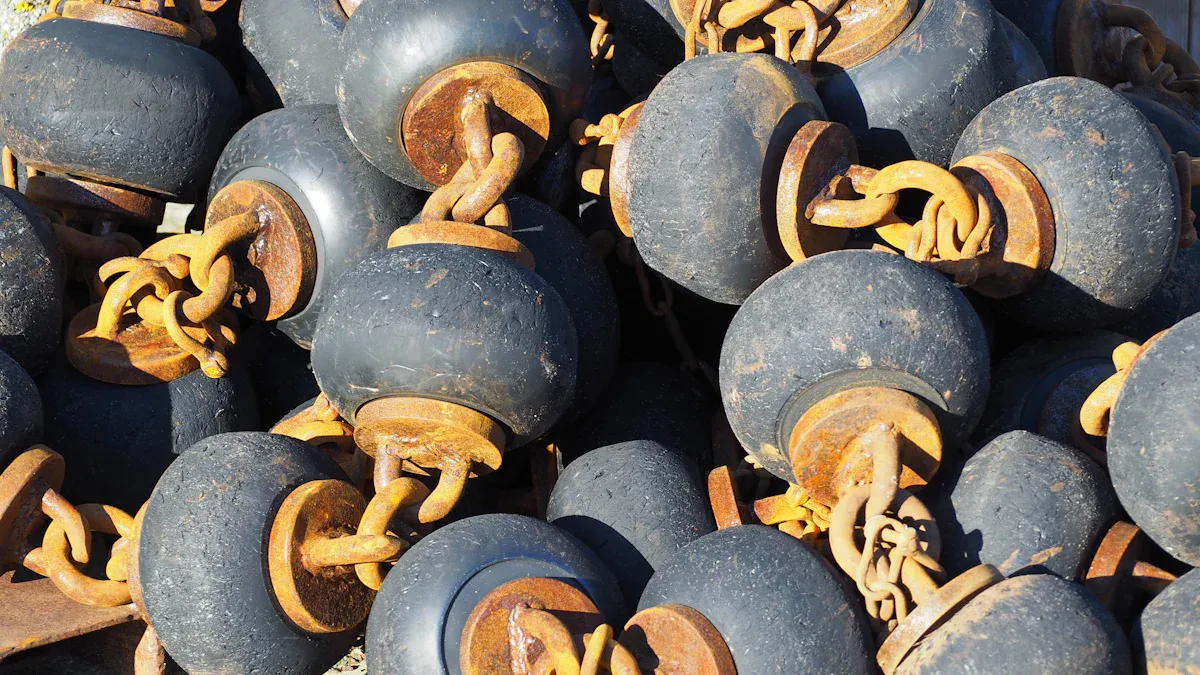
Ecological Risks of Lead Tire Weights
Lead tire weights pose a significant environmental concern. When these weights fall off vehicles, they often end up on roadsides, where they break down into smaller particles. Rainwater can wash these particles into nearby streams and rivers, contaminating water sources. Studies have shown that lead from wheel weights dissolves quickly in water, especially during heavy rainfall. For example, in a scenario with a stream flow rate of 50 cubic feet per second and two rainfall events per year, lead concentrations can reach alarming levels. The table below highlights some key findings:
| Parameter | Value |
|---|---|
| Maximum water concentration | 0.0000164 μg/L |
| Level of concern for acute exposure | 65 μg/L |
| Estimated lead wheel weights lost | 257 (1-ounce weights) |
| Stream flow rate | 50 cubic feet per second |
| Dissolution rate | Fastest modeled rate |
| Rainfall events per year | 2 |
These numbers illustrate how even small amounts of lead can accumulate and harm aquatic ecosystems. Over time, this contamination affects not only wildlife but also human communities that rely on these water sources.
Benefits of Lead-Free Wheel Weights
Switching to non-lead alternatives eliminates these risks entirely. Lead-free wheel weights, made from materials like steel, zinc, or composite alloys, do not leach toxic substances into the environment. This makes them a safer choice for both urban and rural areas. A Canadian study highlighted the broader benefits of phasing out lead wheel weights. It found that reducing lead exposure could lower blood lead levels in children, improving cognitive development and overall public health. The study estimated societal benefits ranging from C$248 million to C$1.2 billion annually, thanks to increased lifetime earnings and reduced healthcare costs.
By choosing non-lead options, you contribute to a cleaner environment and healthier communities. These weights align with modern sustainability goals, making them a responsible choice for tire shops and vehicle owners alike.
Long-Term Environmental Advantages of Non-Lead Options
The long-term advantages of non-lead weights extend beyond immediate environmental protection. Unlike lead tire weights, which degrade and pollute over time, non-lead alternatives offer durability without harmful side effects. A study in New Jersey estimated that 23 to 26 metric tons of lead enter the environment annually from lead wheel weights. This staggering figure underscores the importance of transitioning to safer materials.
Non-lead weights also support global efforts to reduce heavy metal pollution. As more regions implement bans on lead products, adopting these alternatives ensures compliance with future regulations. By making the switch now, you help reduce the cumulative impact of lead pollution, paving the way for a healthier planet.
Performance and Durability of Lead vs Non-Lead Wheel Weights
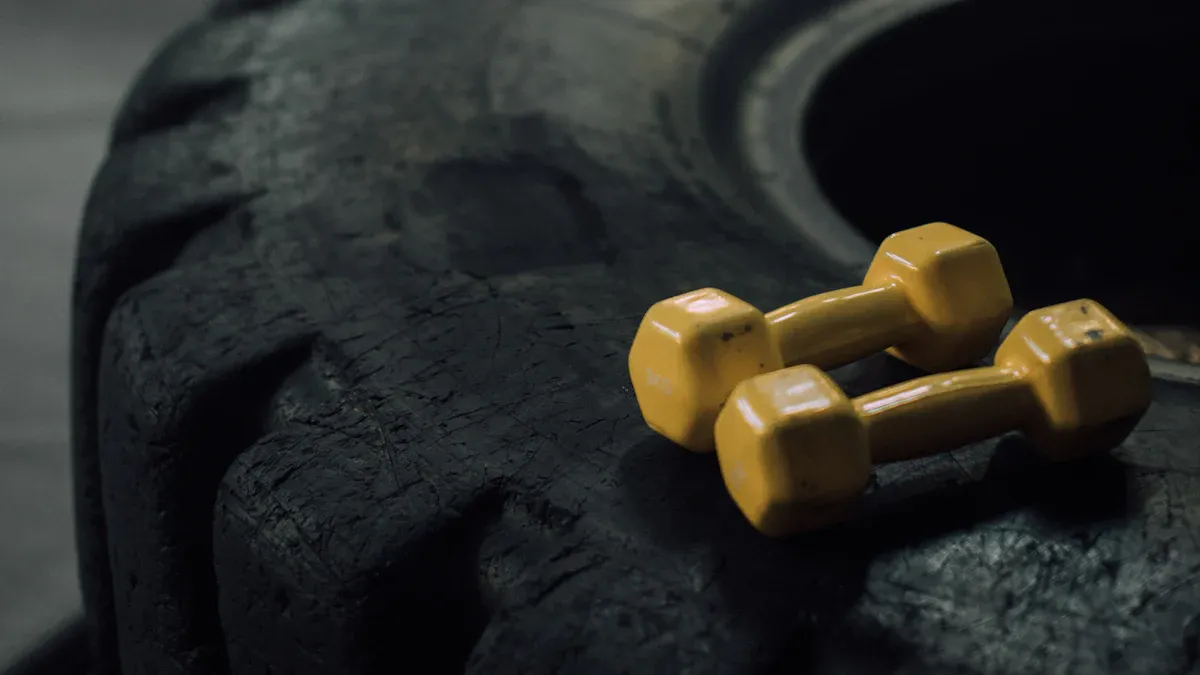
Weight Retention and Balance Accuracy
When it comes to wheel balance, weight retention plays a critical role. Lead tire weights have long been valued for their density, which allows them to stay securely attached to wheels even under challenging conditions. However, advancements in wheel weight materials have made non-lead wheel weight alternatives equally reliable. Materials like zinc and steel provide excellent adhesion and balance accuracy, ensuring smooth vehicle operation. These alternatives undergo rigorous testing to match or exceed the performance of traditional lead weights, making them a dependable choice for modern vehicles.
Longevity and Corrosion Resistance
Durability is another key factor to consider. Lead tire weights are prone to corrosion over time, especially when exposed to road salt and moisture. This can lead to premature failure and the need for frequent replacements. Non-lead wheel weight alternatives, such as those made from coated steel or composite alloys, offer superior resistance to rust and wear. Their robust construction ensures they maintain their integrity in harsh environments, reducing the likelihood of detachment or degradation. By choosing non-lead options, you can minimize maintenance costs and improve the lifespan of your wheel weights.
Real-World Performance of Non-Lead Wheel Weight Alternatives
Field performance reports highlight the operational reliability of non-lead wheel weight alternatives under various conditions. These weights perform consistently across different tire types, vehicle weights, and motion states. For instance:
- Computer vision techniques used in non-contact vehicle weighing methods confirm the accuracy of these weights.
- Tests show they remain effective under varying inflation pressures and environmental conditions.
- Compared to traditional methods, non-lead weights demonstrate high precision and robust performance.
This real-world reliability makes non-lead options a practical and efficient solution for tire shops and vehicle owners. By transitioning to these alternatives, you can ensure consistent performance without compromising on safety or quality.
Cost Analysis of Lead and Non-Lead Tire Weights
Upfront Costs of Lead vs Lead-Free Wheel Weights
When comparing upfront costs, lead tire weights often appear more affordable. Their lower production costs make them an attractive option for many tire shops. However, this initial savings comes with trade-offs. Non-lead wheel weights, made from materials like zinc or steel, tend to have a slightly higher price tag. This is due to the cost of raw materials and the advanced manufacturing processes involved. While the upfront expense may seem higher, it’s important to consider the broader financial picture.
Long-Term Savings with Non-Lead Options
Non-lead wheel weights offer significant long-term savings. Their durability reduces the need for frequent replacements, saving you money over time. Unlike lead wheel weights, which corrode easily, non-lead alternatives maintain their integrity even in harsh conditions. This means fewer replacements and less downtime for your operations. Additionally, non-lead weights align with growing environmental regulations, helping you avoid potential fines or penalties. By investing in these alternatives, you can reduce operational costs while ensuring compliance with industry standards.
Hidden Costs of Lead Tire Weights (e.g., fines, disposal fees)
The hidden costs of lead tire weights can quickly add up. Many regions have implemented strict regulations on the use and disposal of lead products. Non-compliance can result in hefty fines, which can strain your budget. Disposal fees for lead-based materials also increase operational expenses. Moreover, the environmental damage caused by lead contamination can lead to reputational harm, potentially driving customers away. By switching to non-lead options, you eliminate these hidden costs and position your business as a responsible, forward-thinking operation.
Regulatory Compliance and Lead-Free Wheel Weights
Regional Bans and Restrictions on Lead Tire Weights
Governments and environmental agencies worldwide are taking action to reduce the use of lead tire weights. These measures aim to protect ecosystems and public health from the harmful effects of lead contamination. In the United States, nine states have already implemented bans on lead wheel weights. Canada has gone a step further by prohibiting the manufacture and import of these weights entirely. The table below highlights key regulatory actions:
| Source | Description |
|---|---|
| EPA Report | Nine U.S. states and Canada have banned lead wheel weights to curb pollution. |
| Canada Legislation | Canada prohibits the manufacture and import of lead wheel weights. |
These restrictions reflect a growing recognition of the dangers posed by lead-based materials. By adopting non-lead alternatives, you can ensure compliance with these regulations and avoid potential penalties.
How Non-Lead Options Ensure Compliance
Switching to non-lead tire weights is the simplest way to meet regulatory requirements. Materials like zinc, steel, and composite alloys are not only safer for the environment but also align with current laws. Lead-free wheel weights eliminate the risk of fines or legal issues associated with lead contamination. They also simplify the disposal process, as these materials do not require the same level of hazardous waste management.
Using non-lead options demonstrates your commitment to sustainability and regulatory compliance. Customers increasingly prefer businesses that prioritize eco-friendly practices. By making this switch, you position your tire shop as a responsible and forward-thinking operation.
Future Trends in Wheel Weight Regulations
The automotive industry is moving toward stricter environmental standards. Regulatory changes are driving innovation in tire weight materials, with manufacturers exploring eco-friendly options like recycled plastics and zinc. The table below outlines the current trends:
| Material Type | Description |
|---|---|
| Lead-based Weights | Facing increasing restrictions due to environmental concerns. |
| Zinc Weights | Gaining popularity as a safer and more sustainable alternative. |
| Eco-friendly Materials | Manufacturers are shifting toward materials like zinc and recycled plastics to meet regulations. |
| Regulatory Changes | Stricter environmental laws are pushing the development of innovative tire weight materials. |
These trends indicate that lead-based weights will likely face further restrictions in the coming years. By transitioning to non-lead options now, you can stay ahead of these changes and future-proof your business. This proactive approach not only ensures compliance but also aligns with the industry’s shift toward sustainability.
Practical Considerations for Tire Shops Transitioning to Non-Lead
Steps for Switching to Non-Lead Wheel Weight Alternatives
Transitioning to non-lead wheel weights requires careful planning. Start by understanding the legal requirements in your region. For instance, California has banned the sale and use of lead wheel weights due to environmental concerns. Familiarize yourself with the available alternatives, such as steel, zinc, and tungsten alloys, which are widely recognized as environmentally safe alternatives. Steel wheel weights, in particular, are the most popular choice due to their durability and cost-effectiveness.
Next, update your inventory to include non-lead options. Work with your team to phase out lead weights and replace them with zinc wheel weights or other lead-free materials. Train your staff on the proper installation techniques for these alternatives to ensure seamless integration into your operations. Finally, communicate this change to your customers, emphasizing the environmental and regulatory benefits of non-lead weights.
Customer Preferences for Eco-Friendly Options
Modern customers increasingly value eco-friendly practices. Many actively seek businesses that prioritize sustainability. By offering non-lead wheel weights, you align with these preferences and demonstrate your commitment to protecting the environment. Highlight the benefits of non-lead options, such as their safety for ecosystems and compliance with regulations. This approach not only attracts environmentally conscious customers but also builds trust and loyalty.
Finding Reliable Suppliers for Non-Lead Weights
Choosing a reliable supplier is crucial for a smooth transition. Look for manufacturers with a proven track record in producing high-quality non-lead wheel weights. For example, industry directories reveal that Vietnam has 274 suppliers with over 2,700 export shipments, while Thailand has 18 suppliers actively serving international markets. Evaluate suppliers based on their certifications, customer reviews, and ability to meet your specific needs. Partnering with a dependable supplier ensures consistent quality and availability of non-lead weights for your shop.
Non-lead tire weights offer clear advantages for tire shops. They protect the environment by eliminating the risks of lead contamination, which can harm ecosystems and public health. Regulatory actions, including state bans on lead wheel weights, highlight the growing demand for safer alternatives. Materials like zinc and steel provide a cost-effective solution while meeting these legal requirements.
Switching to non-lead options also aligns with industry trends. The automotive sector continues to reduce lead content in wheel weights, ensuring compliance and sustainability. By adopting these alternatives, you future-proof your operations and appeal to eco-conscious customers. This proactive step positions your business as a leader in responsible practices.
FAQ
What are non-lead tire weights made of?
Non-lead tire weights typically use materials like zinc, steel, or composite alloys. These materials provide durability and balance accuracy while being environmentally safe. Zinc is lightweight and corrosion-resistant, while steel offers excellent strength and cost-effectiveness.
Are non-lead tire weights as effective as lead ones?
Yes, non-lead tire weights perform just as well. Modern manufacturing ensures they provide accurate balance and strong adhesion. Materials like zinc and steel undergo rigorous testing to match or exceed the performance of traditional lead weights.
Do non-lead tire weights cost more?
Non-lead weights may have a slightly higher upfront cost due to advanced materials and manufacturing. However, their durability and resistance to corrosion reduce long-term expenses, making them a cost-effective choice over time.
Why are lead tire weights being banned?
Lead tire weights harm the environment. When they fall off vehicles, they contaminate soil and water, posing risks to wildlife and humans. Many governments have banned them to reduce pollution and protect public health.
How can I switch to non-lead tire weights?
Start by sourcing reliable suppliers of non-lead weights. Train your staff on proper installation techniques. Inform your customers about the environmental and regulatory benefits of switching to eco-friendly options like zinc or steel weights.
Tip: Partner with certified manufacturers to ensure consistent quality and compliance with regulations.
